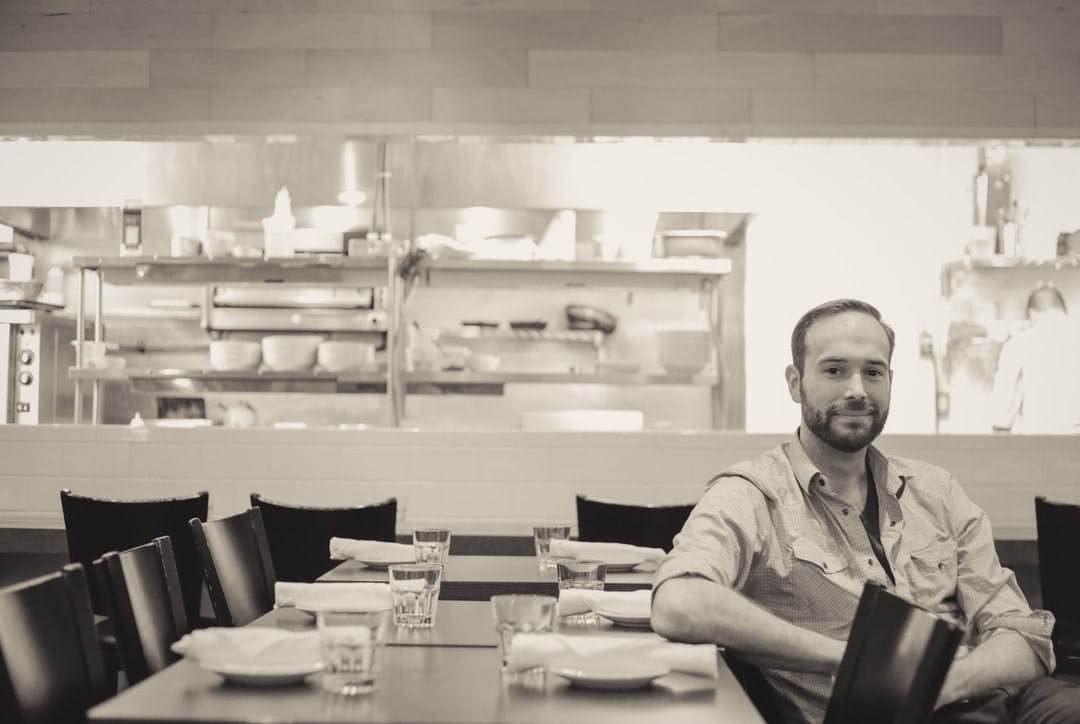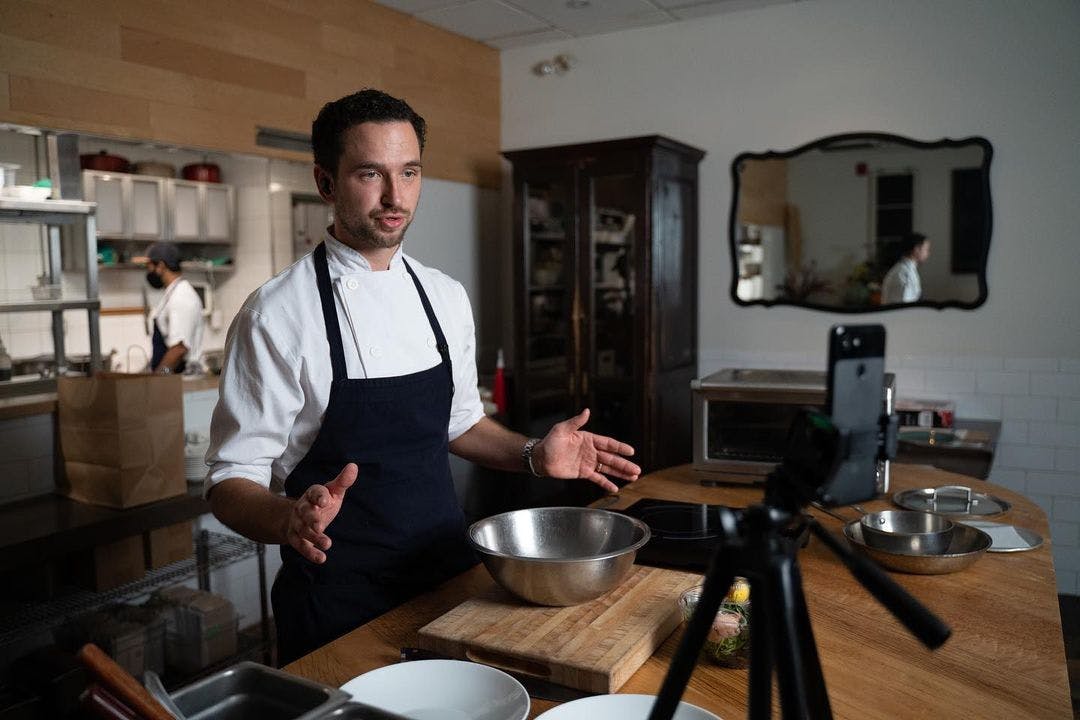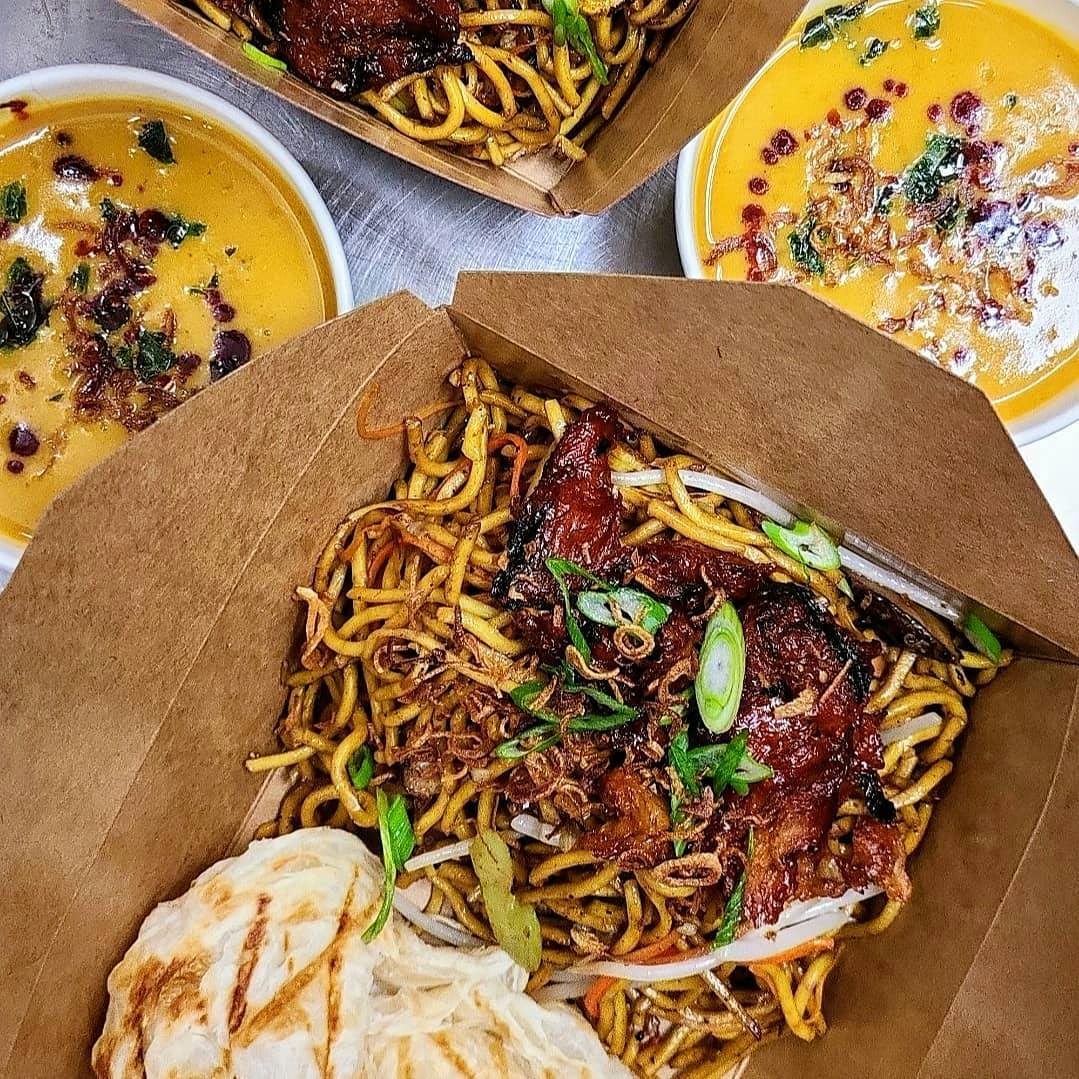
When Richmond Station reopened in the summer of 2020 after the start of the COVID-19 pandemic, the owners of the popular downtown restaurant decided to fully eliminate gratuities and began paying their staff higher wages.
Co-owner Ryan Donovan says this was something they were planning on implementing since 2016, but they never got around to it until the pandemic hit. Paying their staff more equitably will be a permanent change, he says, even once the pandemic is over.
"Seeing people on our team earn uninsured cash tips and seeing their CERB calculations with an absence of a social safety net was a catalyst to make this final step,” Donovan says.

Paying staff fairer wages isn’t the only permanent change that some Toronto eateries are planning to continue upholding once the COVID-19 pandemic passes. Many Toronto restaurants have had to drastically change their business practices during the pandemic to maintain customers, support their employees, and make a profit during lockdowns and indoor dining closures.
It’s not news that Toronto’s restaurant industry has been struggling throughout the pandemic. Nearly half of all food service businesses have been consistently losing money for more than a year, according to Restaurants Canada survey data. And, according to a recent BBC report, Toronto had one of the longest indoor dining bans in the world. In May 2021, employment in the food services industry was also almost 30 per cent below its pre-COVID levels and accounted for nearly 64 per cent of the overall employment decline since February 2020, according to a Statistics Canada labour force survey.
While some restaurants may be hoping to go back to a pre-pandemic normal, others have embraced some of the changes that the COVID-19 pandemic has caused that have proven to be beneficial for their businesses over the last year.
Along with eliminating tipping and paying higher wages to their employees, Donovan says they’ve gained a better sense of their staff’s work-life balance because of the pandemic––their cooks, for the most part, are now working four-day weeks instead of five. He adds that this is a change that they looked at for many years, and it made sense to implement during the pandemic.
"I think everyone has a better understanding of how much they want to work, what their time is worth and how much they need to be paid to leave the things they love and care about to go to work, even if they love their job,” Donovan says.
Richmond Station also began offering virtual events in the midst of the pandemic, which includes corporate or private gatherings, wine tastings, or cooking classes offered over online video platforms like Zoom or Google Meet.
Despite indoor dining being open in Toronto again as of July 16, Richmond Station plans on continuing to offer virtual events alongside in-person events.
"In that way, COVID has made the world very flat,” Donovan says. “We have customers in Calgary and Vancouver now that we didn't have before because we can meet them online.”

Like many of Toronto’s restaurants, Soos on Ossington Avenue started using QR codes during the pandemic so that customers can scan them and view the menu on their phones. Lauren Soo, one of the family-run restaurant’s owners and operators, says it's been an easy system to use, especially because they can go in and change their menu and descriptions at any time. Soo says they see themselves continuing using this after the pandemic is over, while also hoping to bring back physical menus.
"They add to the dining experience,” she says. "But if anyone wants digital menus, we'll still have the QR code so that there's options for the diners."
Prior to the pandemic, the Soo family ran Fat Choi, a plant-based restaurant, out of Soos’ space on the two days that Soos was closed. They planned to open a separate storefront for Fat Choi until the pandemic hit, keeping the plant-based eatery running out of their Soos location. Despite the complication, Soo says she now sees it as an opportunity to grow both businesses, especially by being able to provide takeout and to accommodate different crowds out of the same location.
In York, the Oakwood Hardware’s chef and owner Anne Sorrenti says that the hygienic aspects of the pandemic are what she will continue to upkeep moving forward.
"I feel a lot safer going into restaurants now because people are a lot more aware of how important it is to sanitize and clean,” she says. “I think that won't go anywhere. We always sanitized before, but that extra step is not a bad thing."

Soo also sees the continued health and safety measures from COVID-19 in the restaurant industry as a good thing. "A lot of people just feel safer that things are being sanitized, especially high contact areas like door handles and credit card terminals,” she says. “It's a nice piece of mind."
Donovan sees a silver lining from the impact of the pandemic on the restaurant industry. “There's a lot that's been broken about the restaurant industry for a very long time, whether It's workplace safety or sexual harassment or mental health or food problems, and now it’s sort of in shattered pieces,” he says. “It’s an opportunity to not put it back together broken again, but instead to sift through the rubble and put something together that should work."
He adds that restaurants now also have the opportunity to hire more women and people of colour and to compensate them fairly, especially given that many of Toronto's restaurants have labour shortages.
“I think the future has never looked better for restaurants,” Donovan says. “It's always darkest before dawn."










